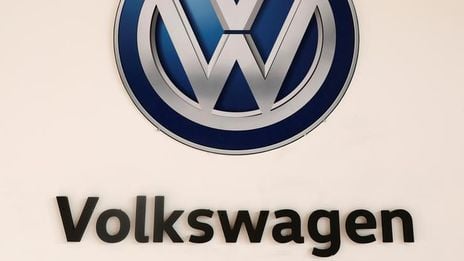WASHINGTON, Jan 3 (Reuters) - General Motors said on Wednesday it is offering incentives of $7,500 on its electric vehicles that earlier this week lost a U.S. government tax credit, while Ford Motor said it is hiking the prices of some of its F-150 EVs by $10,000.
The Treasury issued guidelines in December detailing new battery sourcing requirements aimed at weaning the U.S. EV supply chain away from China. The guidelines took effect on Monday.
GM said last month that all of its EVs would temporarily lose eligibility except the Chevrolet Bolt, adding that the Cadillac Lyriq and Chevy Blazer EVs are losing the credit because of two minor components.
Ford said last month its E-Transit would lose the $3,750 tax credit, as would the Mach-E, but its F-150 EV Lightning pickup truck and the Lincoln Corsair Grand Touring sport-utility vehicle retained credits.
Ford said on Wednesday it would increase the price of its lowest-priced F-150 EVs by $5,000 to $10,000 and cut prices of some premium models by up to $7,000.
Ford said in October it was temporarily cutting one shift at its plant that builds the F-150 Lightning EV. The automaker told suppliers in December that it planned to produce about 1,600 electric F-150 Lightning EV trucks per week starting in January, roughly half of the 3,200 it previously had planned.
GM told its dealers it would provide the equivalent EV tax credit purchase amount "for any vehicles that became ineligible due to the new guidelines."
GM expects that after a sourcing change, the Lyriq and Blazer EVs will regain eligibility in early 2024 and said its Chevrolet Equinox EV, Chevrolet Silverado EV, GMC Sierra EV and Cadillac OPTIQ produced "after the sourcing change will be eligible for the full incentive."
Other vehicles losing the credit include the Volkswagen ID.4, Nissan Leaf, some Tesla Model 3s and Ford Mach-E, the U.S. Treasury said.
The number of EV models qualifying for U.S. EV tax credits fell from 43 to 19.
The new rules allow buyers to claim tax credits of up to $7,500 at participating dealerships at the point of sale. The tax credit sets limits on vehicle price and buyer income to qualify.
Volkswagen said on Monday it "is in the process of confirming eligibility for a federal EV tax credit for vehicles" after Jan. 1.
The 2022 Inflation Reduction Act law reformed the EV tax credit, requiring vehicles to be assembled in North America to qualify for any tax credits, eliminating nearly 70% of eligible models at the time.
The IRA rules allow leased EVs to qualify for $7,500 tax credits without the battery or North America assembly requirements. (Reporting by David Shepardson in Washington Editing by Nick Zieminski and Matthew Lewis)





